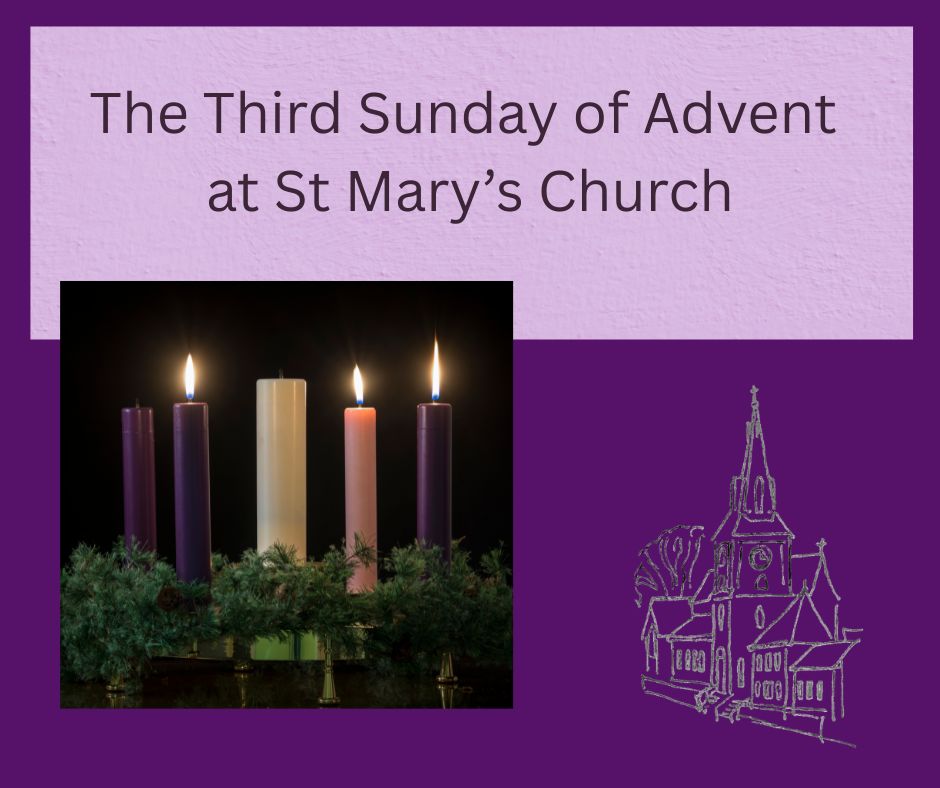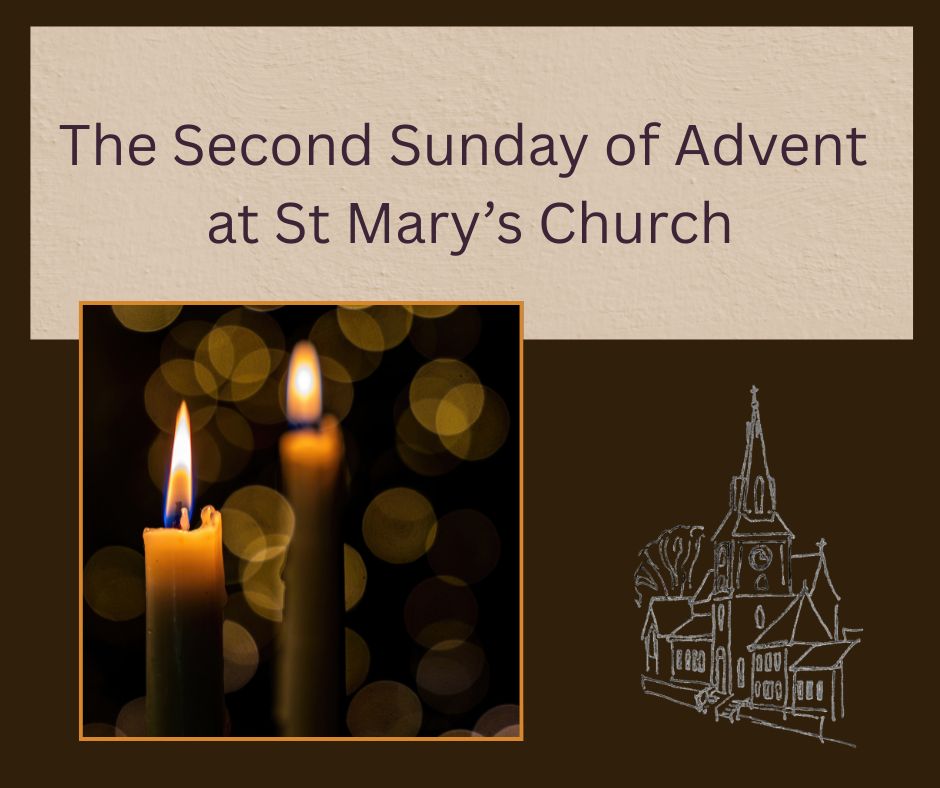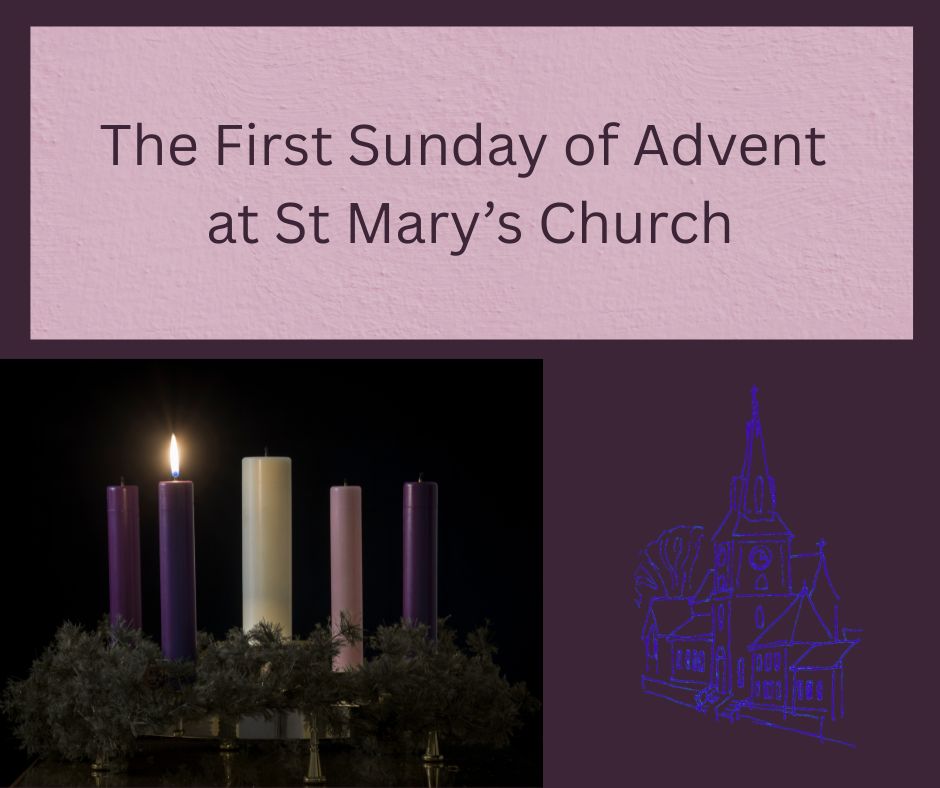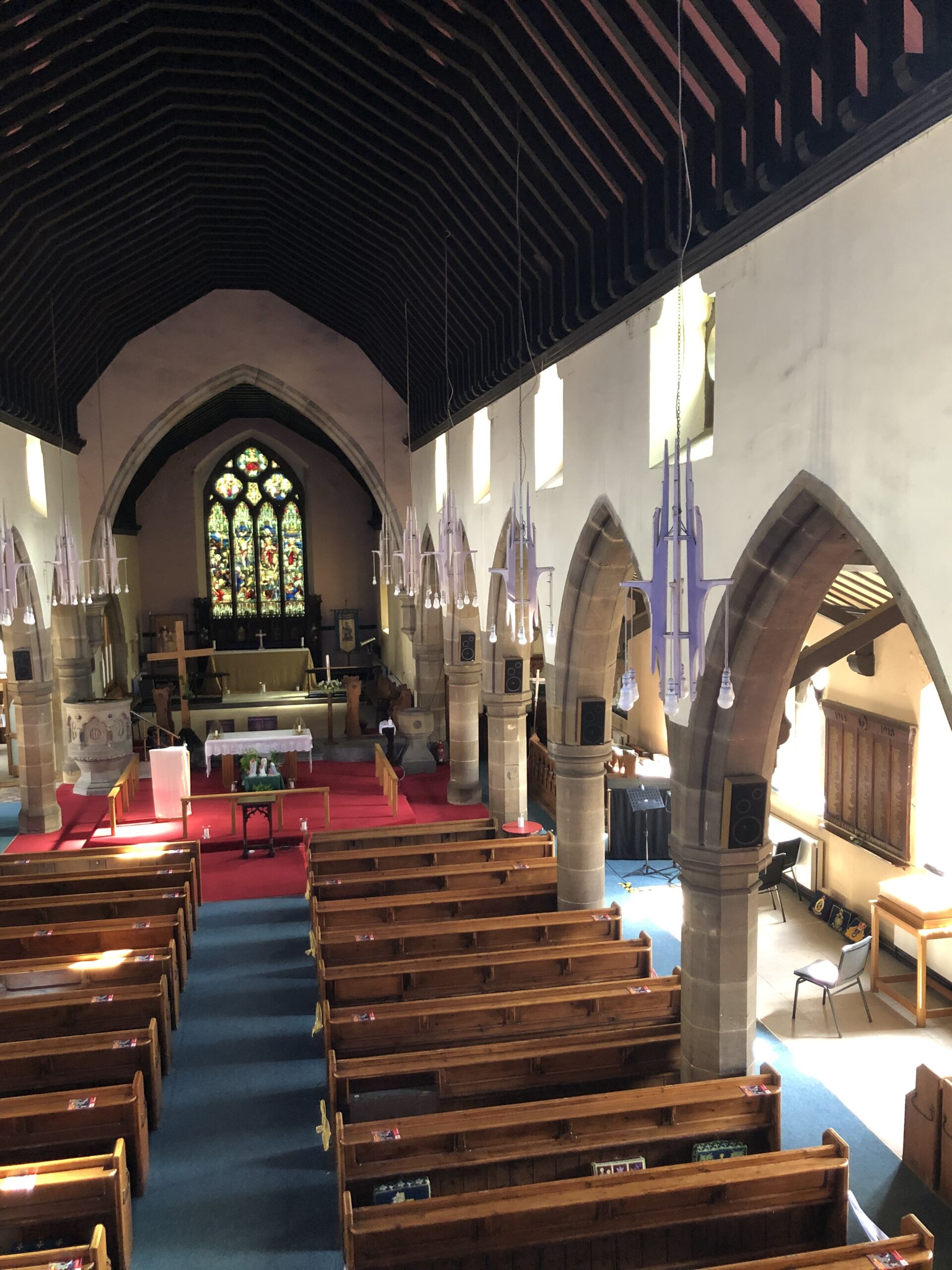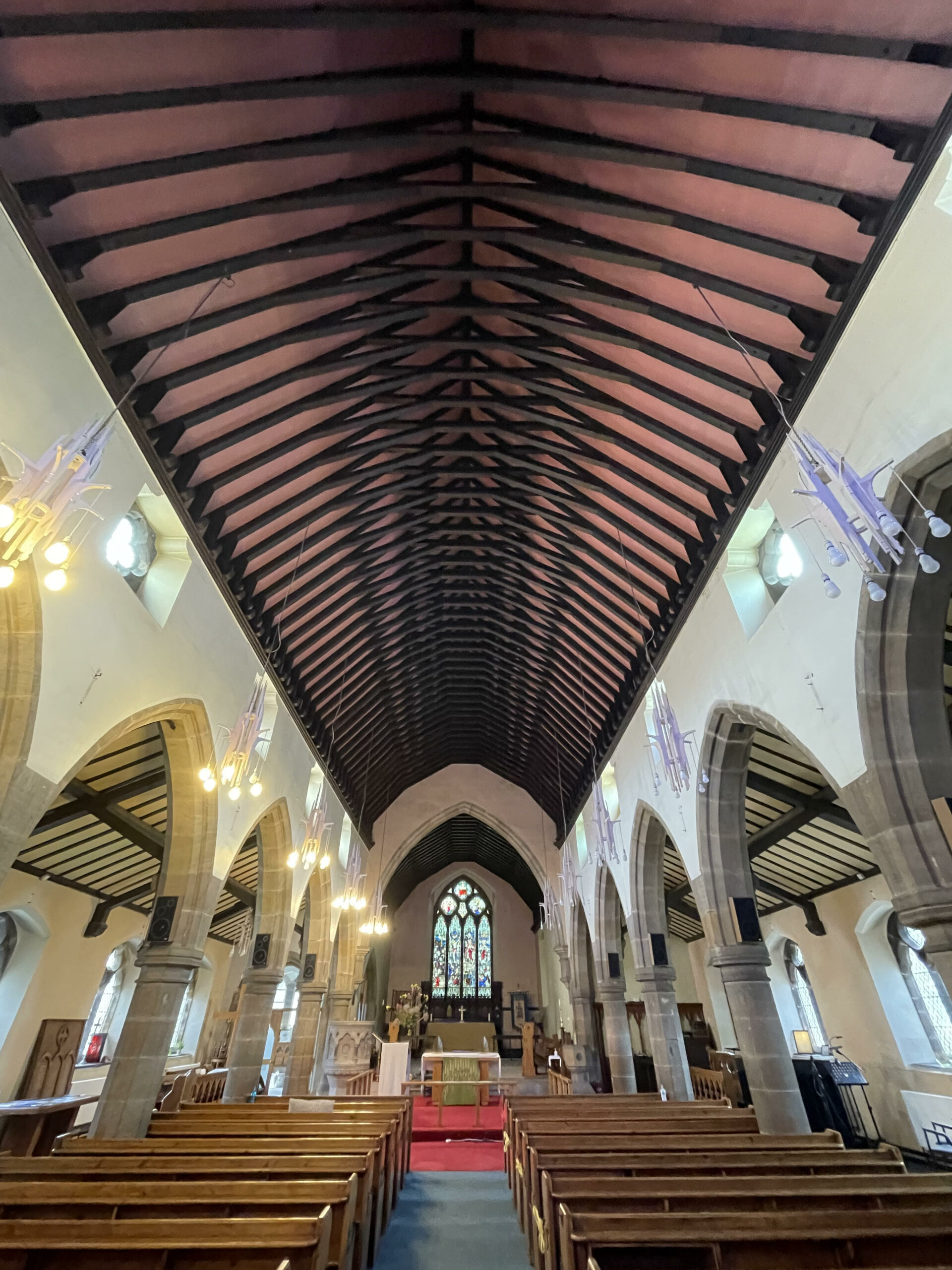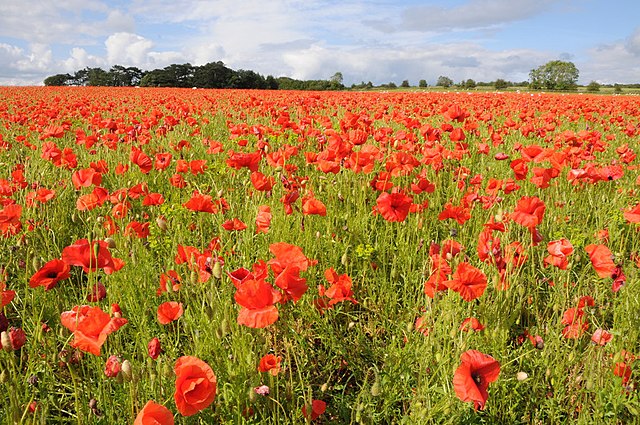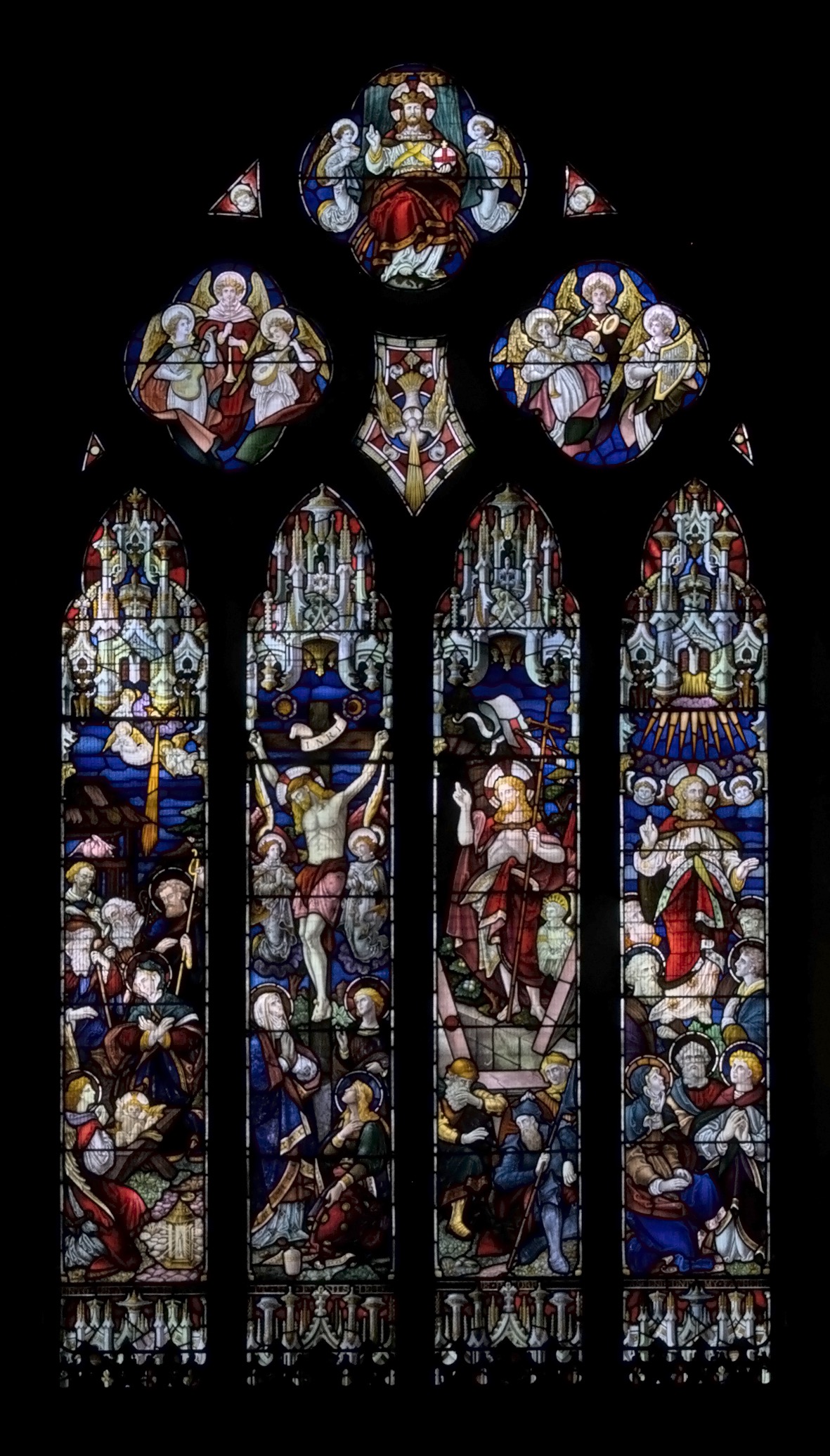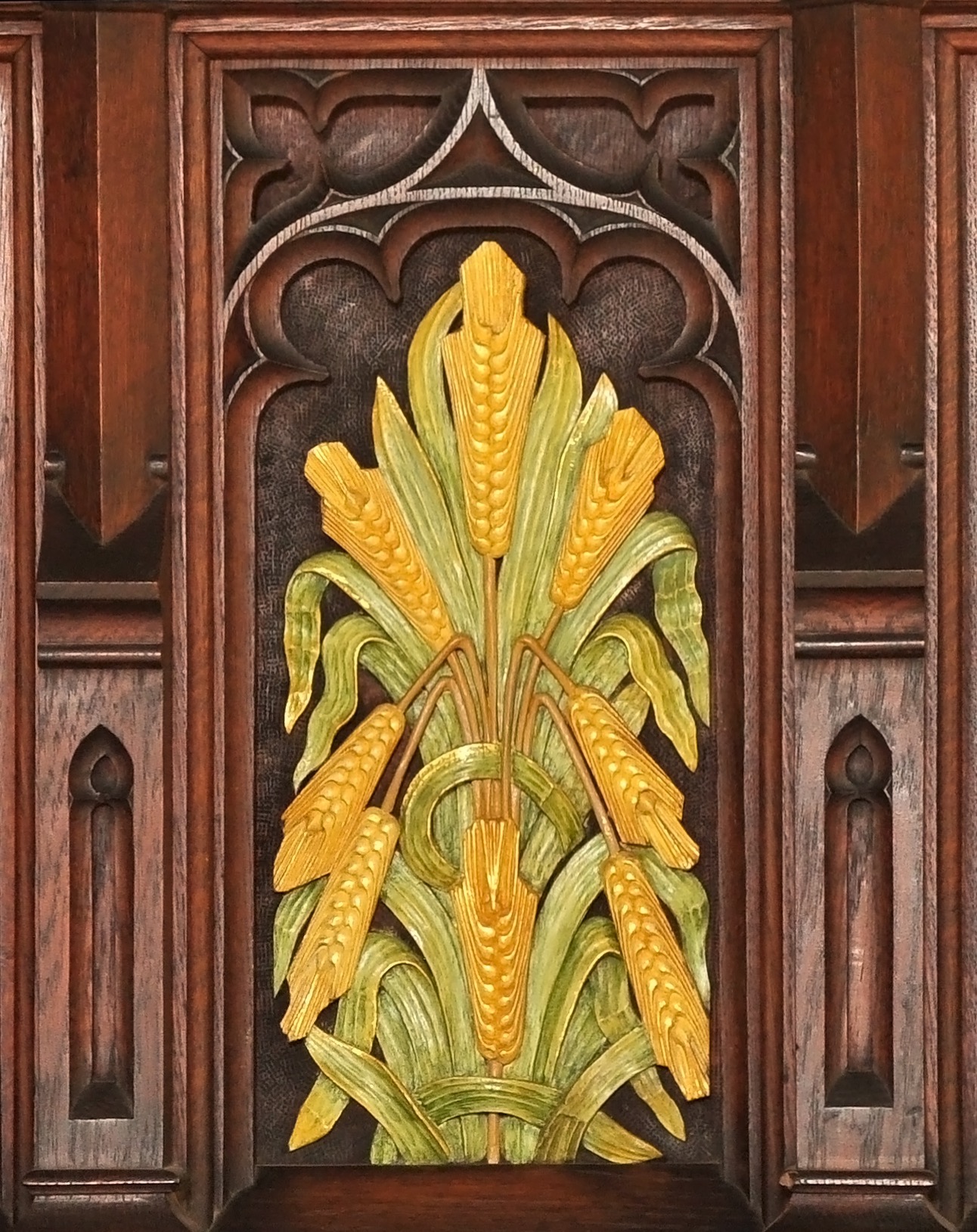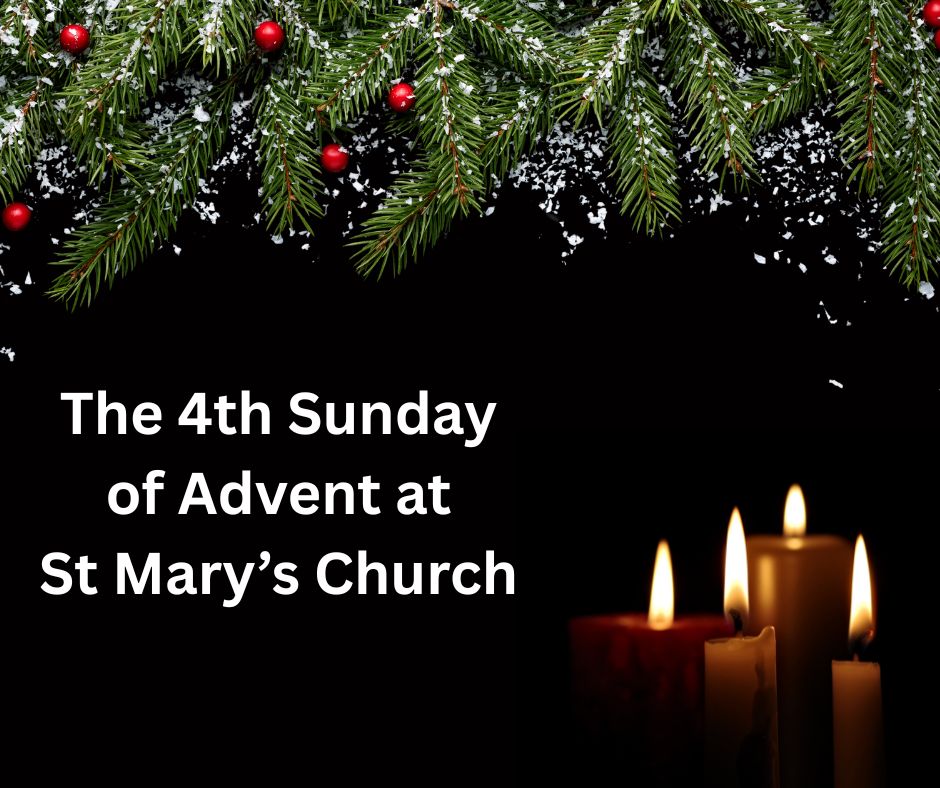
Watch this week's service on YouTube
Download the order of service here - 25 12 21 4th Sunday of Advent Eucharist
Read this week's Church News
The Readings.
Isaiah 7.10-16
Again the Lord spoke to Ahaz, saying, Ask a sign of the Lord your God; let it be deep as Sheol or high as heaven. But Ahaz said, I will not ask, and I will not put the Lord to the test. Then Isaiah* said: ‘Hear then, O house of David! Is it too little for you to weary mortals, that you weary my God also? Therefore the Lord himself will give you a sign. Look, the young woman* is with child and shall bear a son, and shall name him Immanuel.* He shall eat curds and honey by the time he knows how to refuse the evil and choose the good. For before the child knows how to refuse the evil and choose the good, the land before whose two kings you are in dread will be deserted.
Matthew 1.18-end
‘Look, the virgin shall conceive and bear a son,
and they shall name him Emmanuel’,
which means, ‘God is with us.’ When Joseph awoke from sleep, he did as the angel of the Lord commanded him; he took her as his wife, but had no marital relations with her until she had borne a son; and he named him Jesus.
The Sermon
Prepared by The Revd Canon Dr Alan Billings.
We are very near now to Christmas when we celebrate Christ’s birth.
Although there are four gospels – Matthew, Mark, Luke and John - if you
want to know what happened on the first Christmas, only two of them will tell
you.
Mark has nothing at all. He starts his account of the life of Jesus when Jesus
is already a man. John is more interested in the meaning of Christ’s birth,
than what happened.
For a matter of fact account we must turn to Luke and Matthew. But what they
each say is very different.
Those who study the Bible often say that what Luke writes is very much from
the point of view of Mary. You could call the start of his gospel, Mary’s story.
While Matthew’s gospel is Joseph’s story.
Mary’s story speaks of things which are very familiar to us. They are the basis
for children’s nativity plays, Christmas cards and carols. Mary’s story tells how
an angel appeared to her and told her she was to give birth to the saviour.
How she and Joseph journeyed from Nazareth to Bethlehem to be registered,
how Jesus was born in a stable and laid in a manger because there was no
room for them in the inn, and how shepherds visited them that night. This is
Mary’s story in Luke’s gospel. None of it is in Matthew’s gospel.
Mary is celebrated by the Church because she was willing to be the mother of
the Lord, despite not yet being married. An awesome decision for one so
young to have to make. As a mother, she would be accepting responsibility to
raise her son in such a way that he could mirror in his life the nature of God
himself.
One of the best known prayers of the church in every age, perhaps second
only to the Lord’s prayer, is a prayer that captures this central role that Mary
plays: the Hail Mary.
Hail Mary, full of grace,
The Lord is with thee.
Blessed art thou amongst women,
And blessed is the fruit of thy womb, Jesus.
Holy Mary, Mother of God,
Pray for us sinners,
Now and at the hour of our death.
And down the centuries, because the Church has had such a focus on Mary,
as the mother of the Lord, Joseph’s story has tended to be overlooked.
But why? If you think about it, Joseph has to accept similar responsibilities as
Mary.
In a dream he realises that this must start with a willingness to marry Mary, to
whom he is betrothed, even though he knows he is not the father of her
unborn child.
That is a big deal. Even if he accepts that the child is of God, he knows that
he runs the risk of family, friends, neighbours, speculating on what is going
on. They have not been visited by angels, not even in dreams. If the rumour
mill starts, life will be uncomfortable or worse. We still see in some countries
and cultures in our own day how people can behave if they feel shame or
dishonour has been brought on their family.
Imagine what social media might have made of the pregnancy of the as yet
unmarried Mary.
But Joseph is a decent man. A caring man. He takes Mary as his wife and in
doing so takes on, with her, the responsibility of raising Jesus.
And this, surely, is why we should try to hear Joseph’s story as well as
Mary’s, as we approach Christmas. And that was the gospel for today.
It’s a gospel that should speak directly to us. Like us, Joseph is an ordinary
man doing an ordinary job. A person of faith and a person with values. His
faith tells him that he must accept the pregnant Mary as his wife. His values
tell him that he must be a loving husband and a caring father.
If Jesus is to become a loving adult, showing God’s love to the world, he must
be raised in and shaped by a loving family, with people who are kind and
generous and unselfish towards one another.
The message to us could not be clearer: Christian faith, Christian civilisation,
begins with this poor family, because big changes always have small
beginnings, then and now.
If our country, our culture, is to renew itself, it has to start with people like us.
People with faith and values, who, whatever others may think or say, like
Joseph, are prepared to do the right thing.
The Prayers
Prepared by Joe.
In the power of the Spirit and in union with Christ, let us pray to the Father.
Holy God,
You promised a sign to your people and you have given us Jesus,
Emmanuel, God-with-us. Strengthen your Church to bear witness
to that presence in our own day. Give to your people the quiet
courage of Joseph, ready to listen, to change course, and to trust
your strange and gracious purposes.
Bless our bishops, our clergy and lay leaders, and all who will
preach and minister in this Advent and Christmas season in St
Mary’s and our sister churches.
May our churches be places where the anxious find calm, the
doubtful find honesty, and the weary find rest in you.
Maranatha: Amen. Come, Lord Jesus.
God of all nations, you spoke to Isaiah in a time of fear and
political upheaval, and you still speak your word of hope into our
troubled world. We pray for places where conflict and terror seem
stronger than peace, for leaders who are tempted to trust only in
power and not in justice or compassion, for all who live under
occupation, oppression or threat of violence.
Be with those who today have no safe home, for refugees and
displaced families, for those facing winter without shelter or
security.
Turn the hearts of the powerful to the ways of justice, mercy and
peace and away from the lust for power and greed.
Maranatha: Amen. Come, Lord Jesus.
God who came to dwell in an ordinary family, we bring before you
our own community, our streets and neighbours. We pray for
families under financial or emotional strain, for relationships that
are fearful, fragile or broken, for single parents, and those who
carry heavy responsibilities alone.
We remember expectant parents and babies soon to be born, and
those who long for children but cannot have them. Bless our
schools, care homes, local services and workplaces, and help us to
be signs of your compassion where we live.
Maranatha: Amen. Come, Lord Jesus.
Jesus, we pray for all who need your healing and your hope today.
For the sick in body, mind or spirit, for those waiting for or
recovering from treatment, for any weighed down by anxiety,
depression or addiction. We remember people who are lonely,
housebound or in care, those in prison and those living on the
streets of our cities.
In a moment of quiet we name before you any who are on our
hearts this day … May they feel your presence in their lives,
bringing light into their darkness and strength in their weakness.
Maranatha: Amen. Come, Lord Jesus.
God of eternal life, we remember before you those whom we love
but see no longer, and all who have died recently. We pray for
families who will feel their absence keenly as Christmas
approaches. Give to all who mourn the assurance that you are
with them in their grief, and bring us, with them, to that place
where every tear is wiped away and your joy is complete.
Maranatha: Amen. Come, Lord Jesus.
And finally, Lord, we open our hearts to you as we bring our
personal issues and concerns to you at this time, along with our
thanks for the gift of Jesus in the world.
Maranatha: Amen. Come, Lord Jesus.
Rejoicing in Mary who bore your Son, and in Joseph who trusted
your word, and in all your saints, we commend ourselves and all
for whom we pray to your unfailing love.
Merciful Father, accept these prayers for the sake of your Son, our
Saviour Jesus Christ. Amen.
Common Worship: Times and Seasons, material from which is used here is copyright (c) 2010 The Archbishops' Council


